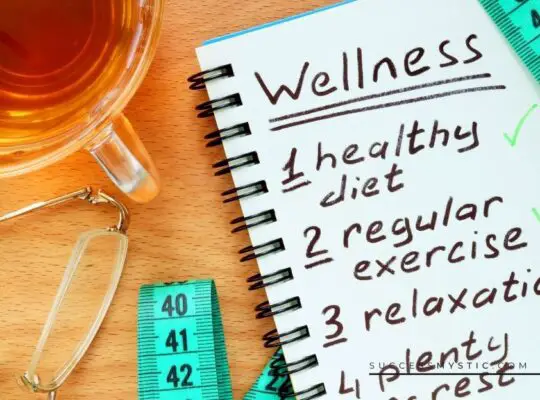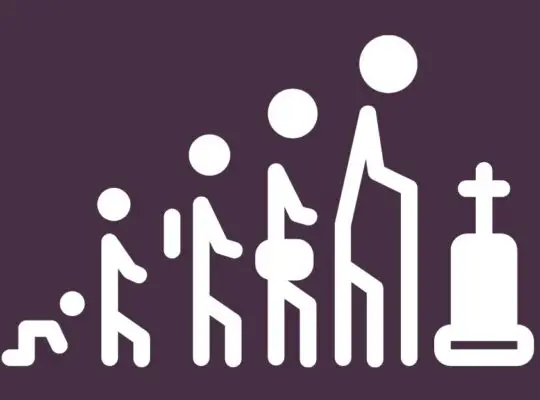“Be yourself; no base imitator of another, but your best self. There is something which you can do better than another. Listen to the inward voice and bravely obey that. Do the things at which you are great, not what you were never made for.” ― Ralph Waldo Emerson
Emerson’s famous essay, Self-Reliance, has inspired millions of readers throughout the years. He tells us that no one is better at being you than you. He reminds us of the importance of following your inner voice and doing what you are made to do. And he inspires us to reach for the strength to obey our intuition and follow our hearts.
Becoming reliant on yourself is an important life goal, one that should be the focus of many people. When you are self-reliant, you can trust yourself to make the best choices for you, to honor your own goals, and to set boundaries that keep you healthy and well.
How does one become more self-reliant, thought?
And why should we follow our instincts?
Keep reading as we explore more about the importance of self-sufficiency in today’s world and how you, too, can and should learn to rely more on yourself.
Understanding Self-Reliance
Self-reliance goes by many names. Some people call it self-sufficiency or accountability or even self-responsibility. All these terms basically mean the same thing. You accept responsibility for your life, and your ability to survive and achieve in life is in your own hands.
Being able to rely upon yourself, to admit that you and you alone are responsible for your life, is a considerable step toward self-confidence and realizing your dreams.
So, if self-reliance means that you can take responsibility for your life, does that mean that you can never ask for help? Or advice? No! That is not what self-reliance is. We all need help from time to time, and we all should feel comfortable asking for others’ opinions or perspectives. Learning from others and allowing others to help you when you need it are necessary in life.
But self-reliance means that you accept responsibility for what happened to get you into the situation. It means that you may listen to other’s advice but, ultimately, you know that it is your decision and only you must live with the consequences.
You do not blame others for your setbacks but instead, learn from the mistakes that caused you to stumble. Self-reliance means that you live with the consequences of whatever happens in your life and that you apply those lessons to your future choices.
Those who lack self-reliance are unable to care for themselves, accept responsibility for their choice and actions, and will never fully enjoy the rewards for their successes. When you lack self-sufficiency, you may rely on others for help, but you do not accept your own role in needing that help.
And you keep making the same mistakes that forced you to need assistance. Self-reliance is being able to take charge of your life, to accept help, but then make the changes to your actions that will ensure you do not need that help again.
Self-reliance is built early in our lives. While we obviously must turn to our caregivers, teachers, and family members for support when we are young, there comes a time when you need to be encouraged to try on your own, and that you should learn from the positive and negative outcomes of being independent.
But, if you are criticized for making mistakes or you are never left to discover for yourself, you may not develop a healthy sense of self and cannot, therefore, accept responsibility for yourself and your life.
Those who lack self-accountability often focus on pleasing others instead of pleasing themselves. When you are not self-reliant, you may blame others for your choices or actions, you may focus on how unfair life is, or you may follow someone else’s wishes and plans for your life instead of doing what makes you happy.
True happiness in life can only be achieved when you are in control over yourself, your choices, and your behaviors. While you may lean on others from time to time for support and assistance, you are not dependent on them for your happiness or survival. And only when you can stand on your own two feet in this way can you feel self-reliant and genuinely happy.
The Importance of Becoming Self-Reliant
There are many reasons that you may want to become more self-sufficient in your life. Taking responsibility for yourself and your choices can have many benefits. Here are just a few of the most important.
- You are capable of making decisions for yourself. You can solve problems, come to conclusions, and rely on your intuition and judgment when it really matters. Being able to think for yourself means that your decisions are based on what is right for you, that you can make them when others are not around to help, and that you can always rely on your own judgment when it matters.
- You develop self-acceptance, which enables you to learn to love yourself and feel compassion for yourself, too. Self-acceptance is difficult for all of us, but when you finally realize that by accepting yourself, you can learn to love and appreciate all your strengths as well as your flaws, you will be free to enjoy your self-reliance to its fullest.
- You will not need others to make you happy. Your happiness lies within you when you have self-sufficiency, and you know that only you have the power to control your life and your success. You do not need to wait around for others to boost your mood, guide your choices, to improve your conditions. You can do it all by yourself.
- Your self-worth improves. When you know that you can trust your intuition and rely on yourself, you feel powerful and confident, which boosts your self-worth. The more you can succeed and live your best life independently, the more you will understand all that you can attain in your life, if you put your mind to it. Confidence and self-worth are valuable parts of your self-identity that will develop when you start accepting responsibility for yourself.
- You become more self-aware. A part of relying on yourself is learning to be comfortable with being on your won. The more time you spend with yourself, the more you will learn about who you are, what is important to you, and what you want in life. Relying on yourself means knowing your strengths and weaknesses, which also heightens your self-awareness.
These are just a few of the many reasons why self-reliance is an important life skill and how it can benefit your life. There are countless others that you will notice when you begin to accept responsibility for yourself and your choices.
The Importance of Intuition
“Nothing can bring you peace but yourself.” ― Ralph Waldo Emerson
The more you learn to rely on yourself and accept responsibility for your life, the more you start to realize that paying attention to your instincts and following your intuition can be a powerful tool for making the best choices for yourself.
We have all had those moments where our gut told us something very strongly, and, when you listened to it, it turned out to be the best decision. What is that feeling? And how does it know what is best?
Intuition is your innate preference toward a particular behavior. It is an instinct, a gut feeling often is felt quickly and without much thought, and you are probably not aware of where it originated. Unlike learned behaviors that are practiced over and over, instincts or intuition is just something you seem to “know” without reasoning.
While much in our culture tries to eschew the value of these intuitive suggestions, there is real value in learning to listen carefully to what these pushes are telling you. Many times, your instinct is helping you bridge the gap between what you consciously KNOW and what you subconsciously feel. It is a shortcut your brain takes when analytic reasoning is not fully formed, but the answer is obvious.
Instinct comes from your past experiences, and it is shaped by the knowledge you have now that you gained from these events. The more experience you have with a particular area of life, the more strongly that intuition will be able to guide you in making the best choices.
And the more self-reliance you have, the more you will be able to trust those instincts and know that they have your best interests at heart.
Your gut feeling is also a way for your subconscious to speak up in defense of your values and beliefs. You have certain things that are important to you, and these get stored deep in your mind, where they are meant to guide your choices and behaviors.
When your intuition is telling you that something is not right or may be the wrong choice for you, it is sometimes because what you can do goes against these principles that guide your life. Your guy is giving you a sign that you may regret this later because it conflicts with your personal code of ethics.
Those with self-assurance and accountability know that you need both reason and instinct in your life.
Your instincts are born from your values and beliefs, while your reason comes from analyzing the facts and looking at all possible outcomes. Hunches are often extremely helpful in helping you make choices when the facts seem clear, but the path is unknown.
The more you learn to rely on your instincts, the stronger this intuition will become, and the more you can trust it to guide you. Like other skills, the more you use it, the stronger it gets.
Over time, your instinct becomes a better guide than any friend or mentor because it is attuned to your needs as well as your experiences, which are they two things that should be guiding you in your choices.
Strategies for Developing Stronger Self-Reliance
“Do your work, and I shall know you. Do your work, and you shall reinforce yourself.” ― Ralph Waldo Emerson
Now that you know what self-reliance is, why it is crucial, and its connection to your intuition, it is time to delve into ways that you can learn to start taking more responsibility for yourself and your life.
Strengthening your self-reliance is an important personal development goal for everyone, no matter where you are on the continuum of accountability. Here are some strategies and goals you can set for yourself that will increase your self-reliance and help you develop a better ability to rely on you and no one else.
1| Seek Approval Only from Yourself
Learning to rely on yourself means that you must accept and appreciate everything about who you are. You must look inward for affirmation of your choices and stop relying on others’ opinions about who you are and what you do.
When you have no faith in yourself, it drains you of power and forces you to rely on others for strength and assistance.
But, when you learn to seek approval only from yourself and to build up your own self-esteem, you will realize that you do not need others to accept you. You approve of you!
And that is all that matters. Find something positive to celebrate about yourself every day. Turn your negative self-talk into positive words of encouragement. Stop relying on others to tell you how good you are and instead tell it to yourself.
2| Treat Yourself as a Best Friend
What do we do for our best friends? We support them in all that they do. We rejoice in their accomplishments. We honor their strengths and achievements. We offer them support when they falter. We accept them for who they are, even when they disappoint us, and we still love them when they make mistakes.
Why would you be willing to treat another person this way but to refuse to treat yourself even half as well? Most people who lack self-reliance will gladly treat their best friend with love and compassion yet be unable to do the same inwardly.
Stop treating others better than yourself. Instead, turn the tables and start being your own best friend. Give yourself unconditional love and support. Offer yourself congratulations and accolades. Celebrate your own strengths. Be there for yourself.
3| Commit to Accepting Responsibility
When you are trying to make a positive change in your life, such as learning to be more self-reliant, the first step is making a promise to yourself. Just as you would commit to helping someone else in need, you need to make the same level of dedication to yourself. Make your promise. Write it down. Create a specific goal for yourself, including how long it will take you to reach it.
Every day when you wake up, think about that promise and decide what you want to do today that will honor it. How can you practice self-sufficiency in your life? How are you going to accept responsibility today?
You are not going to change overnight, and you will not just magically wake up more self-reliant without putting in work and effort every day. Your life will be filled with choices and moments of trial, and each of those is a chance to honor your promise, to practice your goal, and to learn a little more self-responsibility each and every day.
4| Stop Looking to Others for Confirmation or Affirmation
Those who are struggling with their self-reliance will often require reassurance or praise from others to know if they have made the right choice. And without compliments or congratulations form others, you may feel unsure or lost because you do not know how to feel.
When you lack self-responsibility, you may also find you are always telling others about your positive traits, sharing your accomplishments, or trying to prove your worth to other people.
The next time you are waiting around for someone else to give you the positive words you seek, ask yourself why their opinion matters so much to you? The next time you catch yourself telling others about something you did, ask yourself why?
Becoming more aware of these behaviors is the first step. Once you find you are doing it, though, you need to replace these with other, more positive actions. Compliment yourself. Congratulate yourself. Focus on building your self-worth yourself, not relying on others to boost it for you.
5| Keep a Journal
When you are practicing your self-reliance and learning to stand on your own two feet, it can be beneficial to keep a daily journal. Writing about your experiences each day, focusing on what you learned about yourself, what you learned from your experiences, and how you would like to learn to follow your instincts can be extremely helpful. When you write about your own successes, it can boost your self-worth.
You can use your journal to analyze your reaction to setbacks or other events you are facing, too. Your journal becomes a record of your thoughts and choices, which you can look back on to look for trends, identify triggers, and help devise solutions to tricky problems.
Journaling has several mental health benefits, including helping you gain self-confidence, improve your self-awareness and acceptance, and enabling you to realize that you have what it takes to be self-reliant and accept responsibility for your life.
6| Look Out for Needy Behaviors
Remember that being self-reliant is not about doing everything on your own, but it is about not always needing the help of others when it comes to managing your life. Look out for ways that you count on someone else to take care of things you do not want or do not like to take responsibility for.
When you give away your power to someone else, you give away your ability to learn from the situation, to develop new knowledge or skills, and to improve your self-reliance.
Keep an eye on times when you are abdicating responsibility to others. How can you learn to accept personal responsibility of these instead of trusting others to do them for you? When you notice that you believe that you can’t get by without the help of others, you are limiting yourself and your choices and denying your self-reliance from growing.
7| Look for the Right Balance of Support and Help
When it comes to self-reliance, that does not mean that you do not need other people. After all, you need the love of friends and family. You need the emotional support of a partner. You need the knowledge and skills of professionals with more training than you to help you make good choices. You need others.
But the difference is that those with self-sufficiency look at these relationships as mutual. They look at decisions as mutual. They look at advice from others as helping them make good choices, not dictating their behavior.
Working together with others is the heart of being human. You must use your self-reliance to help you forge strong relationships that are healthy for you. You must learn to set boundaries that honor your dreams and allow you to take responsibility for your life. And you must remember that advice or suggestions from others can be taken but that you must live with and accept the consequences for those.
8| Get Clear About Your Values
One crucial part of being true to yourself and relying on your instincts is knowing what is best for you. The values of others or society, in general, may not be in your best interests. A significant step to learning to rely on yourself and trusting your ideas is identifying what is important to you, what you value, and clarifying your personal goals and roles.
The more you are clear about what you want and do not want, what you need and want, the easier it is to stick to your own path and worry only about yourself.
9| Look for Self-Reliance Inspiration
When it comes to learning a new skill, like becoming more reliant on yourself, it can be helpful to learn from others. Look for inspiration in your life. Maybe there are people you already know that are incredibly self-sufficient. What can you learn from them? Maybe you have a colleague you admire for her ability to be independent. Could she mentor you?
Books, articles, blogs, videos, podcasts, and other media are also excellent sources of inspiration. You can learn a lot from listening to others’ stories. Spend just five minutes every day being inspired and motivated by others, and soon you will believe that you too can become self-reliant and develop the strength and skills it takes to control your own life.
10| Expand Your Comfort Zone
Becoming more courageous is a crucial part of learning self-reliance, and the more you step outside your comfort zone and try new things, the more confident and stronger you will feel.
Your comfort zone is where you feel safe, but it is also where you have developed habits that are limiting your life, so anything you can do to stretch will help. And the more you try new things, the less scared you will be to stand on your own and do what you know is right or essential.
Start small and do something new every day that is just a little bit scary. After some time, you can start taking more significant steps to expand your bubble and explore your world. Over time, you will feel more confident that new things are not scary or to be avoided, and the more you will be willing to do things on your own.
11| Avoid Filling Your Life with Possessions to Feel Happy
Material possessions are not a means to achieve happiness or to fill the void left by allowing others to control your life. Clinging to your belongings is just another way that you are giving away your personal power to something outside of yourself. When your life becomes ruled by needing to earn money to buy more stuff, for example, you lose sight of your dreams and what matters to you.
Tying your happiness to anything external, whether it is someone else or material objects, means you are not sufficiently grounded in your self-reliance. Start looking for ways to improve your happiness that do not involve shopping, buying things, looking at your possessions, or talking to others about the things you own.
Start experiencing people and activities instead of worrying about what you have (or don’t). The more you look inward for happiness, the more you will rely on yourself to achieve whatever you want in life.
12| When in Doubt, Look Inward
Everything that you seek in life can be found within yourself. Both the causes and the solutions for all your problems are already inside of you. Looking outward for help or someone to blame your situation on does not help your situation and shifts your power away from you.
When things go wrong or when there is something to celebrate, it is necessary to look inward to determine how you controlled or played a role in that, what you can learn, and how your beliefs or views are influencing how you perceive the world. Instead of turning your gaze toward others, it is essential to engage in self-reflection and focus on yourself.
Final Thoughts
Changing your life can be hard, especially when your behaviors come from those you learned as a young person or that have been reinforced for years by other people. It is going to take time to let go of your dependent thinking and your habits that have led you to this point. Don’t fret. Just because you do not learn to be self-reliant overnight does not mean it is not going to happen.
You must put in the work, trying every day to do one more thing for yourself, to make one more decision on your own, to rely on yourself in one more way.
And soon, you will realize that you are changing, you are learning to stand on your own and take responsibility. And that with more time and effort, you will be the person you want to be. Be patient, be kind to yourself, and let the process work.







